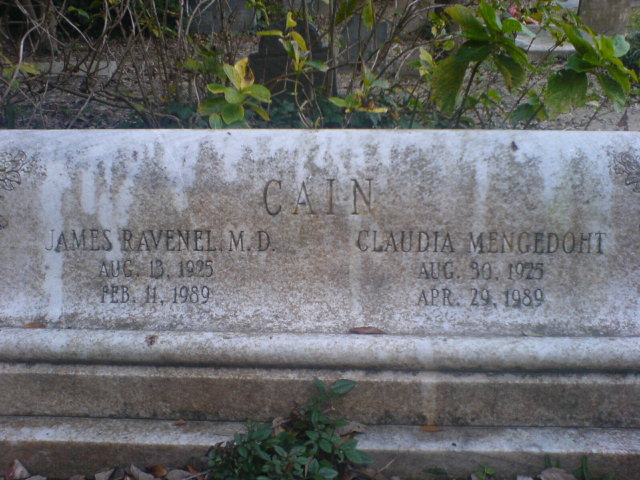Perspective
Christian and Muslim Dialogue
by
Varo Borja
The future belongs to those who prepare for it today.
--Malcolm X (1925 - 1965)
The ancient world as well as the modern has witnessed the struggle and strife of two of the most widespread and militantly devout religious groups ever known to man: Christians and Muslims. Christianity is the older of the two, but it has only known world hegemony since the time of Constantine. Islam, a faith that at its very core has been at odds with not only other religions, but with itself, is the younger by about five hundred years. Quite possibly, the dawn of the atomic age has brought about the impetus for Muslims and Christians to finally destroy each other in a great conflagration, or to finally come to terms, each with the other’s differences of opinion and dogma. Three primary differences, or sources of contention exist between these faiths that act as stumbling blocks to peace and reconciliation. History, politics and views on women ensure that the dialogue between Islam and Christianity will be very difficult but absolutely necessary if the world is to truly know the peace of God.
First of all, the history of warfare between both religions is long and arduous. From Abu Bakr to Pope Urban, to the reign of Mohammed II and the fall of Constantinople, Christians and Muslims slaughtered each other for possession of pieces of earth and dry rocks (Gibbon 753). The fall of Constantinople at the hands of Muslims was engineered by the greed of the Greek Christians who inhabited the city, and by the resentment and power motives of Mohammed II, quite possibly one of the most ruthless men who ever lived (Gibbon 752). After building a fortress on the banks of the Bosphorus to control the flow of goods into and out of Constantinople, in other words after sealing the fate of the Greek Christians who lived there, Mohammed II received a startlingly prophetic declaration from the last emperor of the eastern Roman Empire. In his magnum opus, The Decline and Fall of the Roman Empire, Edward Gibbon relates the emperor’s words:
“Since nether oaths, nor treaty, nor submission can secure peace, pursue,” said he to Mohammed, “your impious warfare. My trust is in God alone: if it should please him to mollify your heart, I shall rejoice in the happy change; if he delivers the city into your hands, I submit without a murmur to His holy will. But until the Judge of the earth shall pronounce between us, it is my duty to live and die in the defense of my people” (Gibbon 753).
This statement of defiance is just one of many made over the almost 1500 years of sporadic warfare between Muslims and Christians. With a long history of hate and misunderstanding such as this, the successful dialogue between Christians and Muslims will surely be difficult to accomplish, but if the lion is to finally lie down with lamb, an understanding must be reached (Isaiah 11:6).
The realm of politics is also a source of contention for the Muslim nations of the Middle East and the Western, predominantly Christian nations. Issues with Israel and arguments over oil reserves promote a climate of strife for these warring factions of differing ideologies. In the United States, opinions as to Western involvement in Middle Eastern affairs are drawn along two distinct lines: the paleoconservative, libertarian, and Leftist groups advocating almost total isolationism from Middle Eastern entanglements, and the neoconservative Right who maintain that Middle Eastern involvement is absolutely necessary and pragmatic (Stephens 25). According to Bret Stephens, author of the article How to Manage Savagery, “the (isolationist) view hardly bears discussion: all mention of Israel aside, access to Middle Eastern energy resources is a vital American interest and will almost certainly remain so for decades” (25). However, even with the wars in Afghanistan and Iraq seeming to take an upturn, western political and economic aggrandizement in the Middle East will be difficult, partly because of extremist Muslim hatred for the West, and also because of sectarian strife. According to Bret Stephens, Islamic society usually segments itself into three distinct entities: the middle class, the “anti-modern” element (comprising the various extremists), and poor, rural tribesmen (26). Also according to Mr. Stephens,
so far, many of our democracy-promotion efforts have been aimed at the middle class, the one most familiar to us (but) it is necessary to isolate anti-moderns by creating political alliances between the urban middle class and the tribes (26).
These barriers present political challenges to both sides of the ideological spectrum. For the West, a shift in policy to reflect the sociological dynamic of Islamic culture is in order, and for Muslims, a willingness to put aside both hatred of the Christian infidels, and a deep desire to heal sectarian differences must come to pass. This political reconciliation will certainly be challenging and may take decades, or even centuries to complete, but a willingness to try is vital if the citizens of the earth are to know true harmony.
Lastly, differing views on women present a difficult obstacle for the peace process between Muslims and Christians. The Christian West has witnessed liberation of women on an unprecedented scale in the last century. Women wield more power in the United States and Europe than ever before. The previous presidential race here in the U.S. saw two viable, women contenders for high political office; this feat was unthinkable for Americans less than one hundred years ago. Islamic culture too has undergone some dramatic changes regarding the status of women, with many Middle Eastern females adopting the garb and enlightened familial roles of their Western counterparts. However, there has been a strong backlash in the Middle East against this trend. In her book, Nine Parts of Desire: The Hidden World of Islamic Women, Geraldine Brooks chronicles some of the struggles of Islamic women and their acquiescence to the prescribed, fundamentalist code of dress called hijab (Brooks 8). Ms. Brooks describes a young, Egyptian woman named Sahar, who:
had opted to wear (the hijab) in Egypt’s tormenting heat (therefore) signifying her acceptance of a legal code that valued her testimony at half the worth of a man’s, an inheritance system that allotted her half the legacy of her brother, a future domestic life in which her husband could beat her if she disobeyed, make her share his attentions with three or more wives, divorce her at whim and get absolute custody of her children (Brooks 8).
Certainly mind boggling to Western Christians, and particularly to liberated American women, this ultra-conservative dress code trend and all that it entails has and will create ever more difficult barriers for Christians and Muslims. The hijab is a political tool, a religious phenomenon, and an anachronistic vice to keep women, who traditionally seek peace rather than war, in bondage. This foundational schism between the Muslim Middle East and the Christian West, although not the most blatant of differences, certainly will be problematic for the dialogue between these two cultures, especially as women grow more powerful in nations like America. However, both cultures must strive for equilibrium in their attitudes toward women if peace is to reign in the future.
In conclusion, it is important to remember that, although Christianity, in the present day, seems to favor much more progressive political and gender equality policies in the nations where it is the predominant religion, the searchlight of history does not always cast a favorable glow upon the followers of Jesus. In the eighth century, under the Abbasids, Muslim culture entered its “golden age” and became the flower of the world, while in Christian Europe the Dark Ages clouded the landscape where the mighty Roman Empire once stood (Fisher 408). Perhaps the measuring stick of time in relation to enlightened culture and progressive ideologies need not be a stick at all, but a circle instead. From all evidence, great civilizations only follow linear time to a certain extent—they rise for perhaps a few hundred years and then sink into decline, only to rise again at a later date. Religions seem to follow the same pattern, as they are inextricably woven into the fabric of civilization. Perhaps also the great Islamic faith is undergoing a period of cleansing in the great circle of time, much as the Christian world did during the Dark Ages and later, the Reformation. Finally, couldn’t it come to pass that both Christianity and Islam, the two most populous faiths of the world, could have their next golden ages coincide on the wheel of time, and therefore bring about a better world than we have ever known? Surely through the prayers and service of saints from all faiths,
brought about by a long sought, common goal, the historical, political, and gender related issues of both creeds will no longer be impediments to the power and peace of God’s love.





